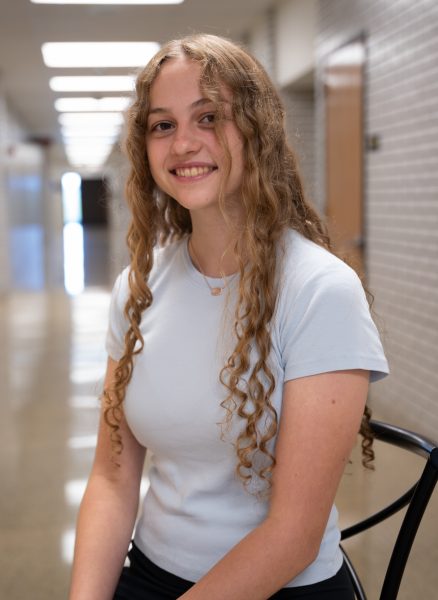In the intensity of one of the most intense preparation months for standardized testing, dozens of students are taking time to cultivate their creativity.
Since 2013, NA’s annual 30-Day Poetry Challenge challenged students to pause and write a poem for each day of April, which is National Poetry month. The event encourages NA students to add to the collection of poems that have shaped history, paving a path for them to write their way into history themselves.
The NA 30 Day Poetry Challenge began when NASH GOAL teacher Mrs. Lombardi transitioned from her position as an English teacher to her current role as a gifted education teacher, eleven years ago. While there’s no shortage of poetry challenges published during National Poetry Month, Lombardi hoped to better connect with NA student poets by creating her own challenge.
“I was looking for a way to connect with writers because I missed that aspect of being a classroom teacher,” said Lombardi.
The challenge invites all aspiring poets, regardless of their writing experience, to write each day of the month and improve by any increment while doing so.
“Because we are writing every day, there’s a lot of growth that takes place, even in that one month,” Lombardi said. “It always amazes me to witness that growth.”
The prompts, sometimes written by Lombardi herself, are sent out daily by email, but daily participation is far from a requirement. Anything written is progress.
“If you don’t have time to write a poem every day, no worries!” Lombardi explained. “There’s no penalty. Maybe you only have time to write one poem per week or one poem this month. That’s okay. Writing even one new poem is a win in my book.”
The NA 30-Day Poetry Challenge also serves to create a sense of community among participating student writers. While sharing work is never mandated, students are often encouraged by the work of their peers to just keep writing.
“We all acknowledge that it’s hard to ‘put yourself out there’ when sharing poetry, so the goal is to give praise and encouragement,” Lombardi said. “It’s such a confidence booster when you can tackle a challenge and feel good about the results!”
Students who decide to share their work also contribute to a community of young writers who are trying to cultivate their own creativity alongside their writing ability. Different interpretations of each prompt can inspire new ideas among other participants, preventing participating students from feeling stuck on the same repetitive ideas.
“I’ve loved the connections we’ve built as a community of writers,” said Lombardi. “It seems like the students enjoy sharing their work and also seeing the creative approaches others used to address the same prompts.”
Lombardi believes that these connections help students become better writers, creative thinkers, and peers.
“Poetry provides a window into someone else’s world,” she said.


